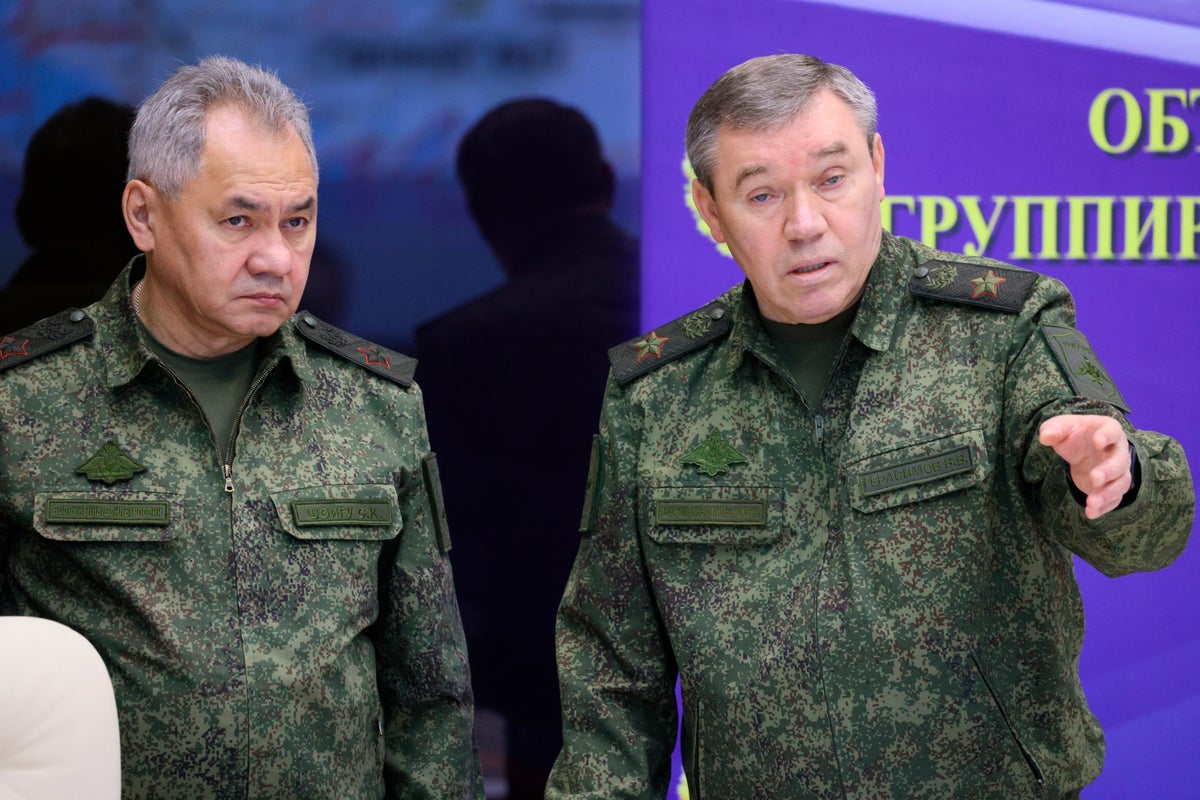
Russia’s top military officer was put in charge of troops fighting in Ukraine on Wednesday, a move that appears to reflect the Kremlin’s dissatisfaction with the current leadership and flaws in the military's performance.
Russia’s Defense Ministry said that Gen. Valery Gerasimov, the chief of the General Staff of the Russian armed forces, was named the new commander of the unified group of forces in Ukraine.
The previous commander, Gen. Sergei Surovikin, was demoted to become Gerasimov’s deputy along with two other generals.
The reshuffle, which was formally ordered by Defense Minister Sergei Shoigu, clearly came on Russian President Vladimir Putin's approval, signaling that he still has trust in his top military leaders who have faced broad criticism for the troops' performance in the conflict.
It also suggests a recognition of flaws in carrying out what Putin called “the special military operation” in Ukraine.
While announcing Gerasimov's appointment, the Defense Ministry said it was aimed at improving coordination between various forces fighting in Ukraine.
“Raising the level of leadership of the special military operation is linked to the expansion of the scale of the tasks being fulfilled as part of it and the need to organize closer interaction between branches of the military and to increase the quality of supplies and the efficiency of directing groups of forces,” the Defense Ministry said in a statement.
Surovikin was credited with strengthening coordination and reinforcing control over Russian forces in Ukraine after his appointment in October. His demotion to the No. 2 role signaled that while Putin wasn’t quite happy with his performance, he still trusts the general’s expertise.
Soon after Surovikin was appointed in October, Russian troops pulled back from the southern city of Kherson under the brunt of a Ukrainian counteroffensive. The retreat from the only regional center captured by Russia since it sent troops into Ukraine on Feb. 24 came weeks after its annexation by Moscow and dealt a painful blow to the Kremlin.
In his turn, Gerasimov, who was seen as the top architect of the Russian action in Ukraine as the country’s top military officer in charge of strategic military planning, was also widely blamed for Moscow’s military setbacks.
His critics included Yevgeny Prigozhin, a millionaire businessman with close ties to Putin. Prigozhin, whose Wagner Group military contractor has played an increasingly prominent role in the fighting, has accused Gerasimov of incompetence and blamed him for a string of Russian military setbacks.
Such criticism was also shared by Chechnya’s leader, Ramzan Kadyrov, who deployed troops from his region to fight in Ukraine and repeatedly urged the Kremlin to up the ante in the conflict.
The criticism of Gerasimov from Prigozhin and Kadyrov rose to a high pitch in September, when Russian troops were forced to pull back from Ukraine's northeastern region of Kharkiv by a swift Ukrainian counteroffensive.
Kadyrov particularly accused Gerasimov of covering up for his protege, Col. Gen. Alexander Lapin, who was in charge of the troops that retreated from the Kharkiv region.
Despite such attacks, Lapin was promoted to become the chief of staff of ground forces earlier this week. His promotion along with Gerasimov's new appointment appear to signal that Prigozhin and Kadyrov have little influence over the Kremlin's decision-making despite their increasing public activity.







